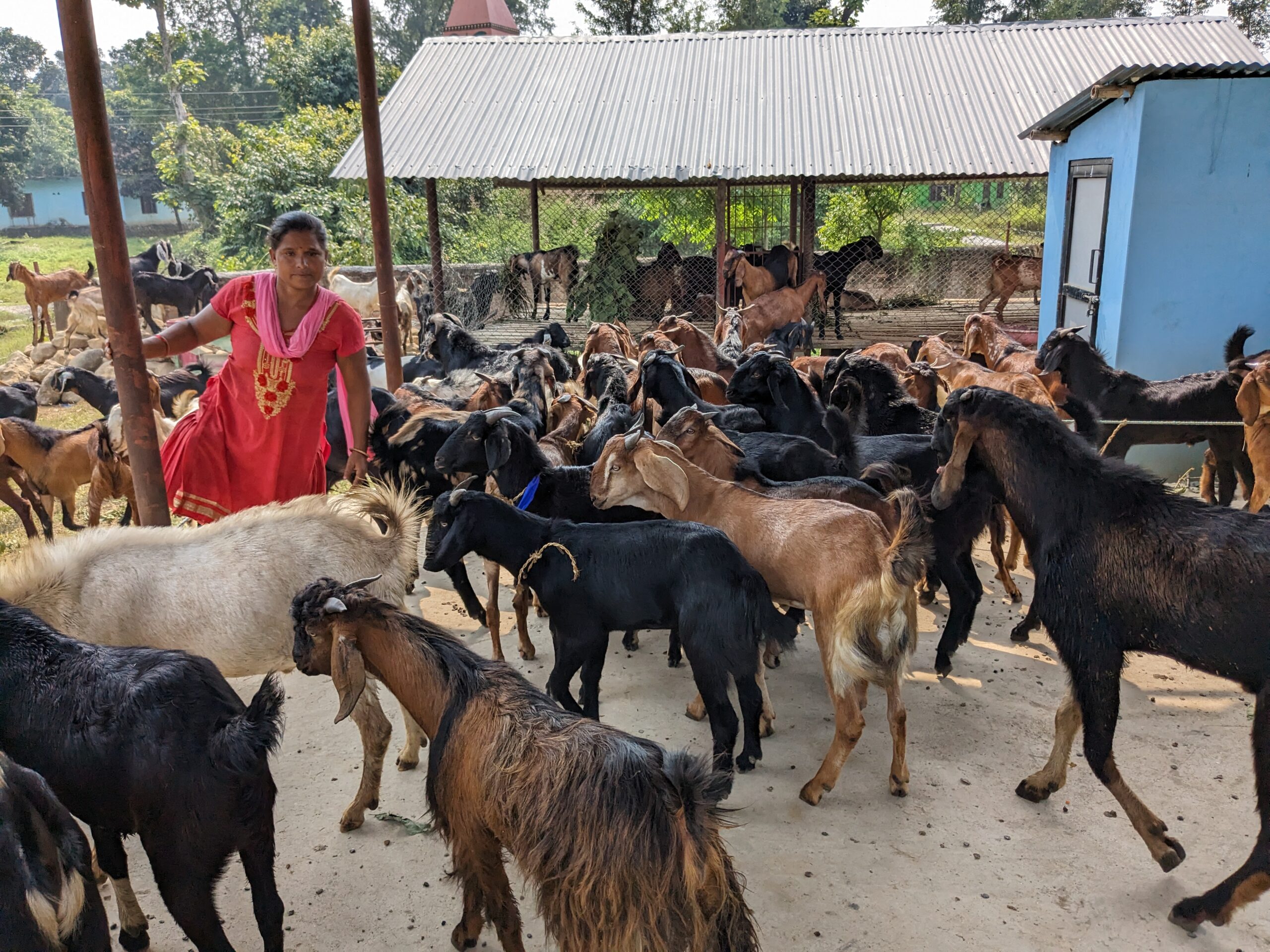Overview
Researchers
Travis Lybbert
Professor of Agricultural and Resource Economics at University of California, Davis
Nicholas Magnan
Assistant Professor at Colorado State University
Bhola Shrestha
Heifer International
Conner Mullally
Associate Professor at University of Florida
- Country
- Nepal

Photo credit: Pratyoosh Kashyap
Cooperatives can help small-scale farmers’ more effectively reach new markets and achieve higher profits through economies of scale. Digital tools might improve cooperative management of collective sales while promoting inclusion and empowerment of women. Researchers are conducting a randomized evaluation to test the impact of digital tools that support collective marketing for cooperatives and that also provide formalized training to rural women working as community agrovets.
Policy Issue
In low-and-middle-income countries, livestock production is a key growth sector for rural economies. However, farmers’ often lack access to affordable and quality input services as well as output markets to sell their livestock and animal by-products. Cooperatives help farmers’ achieve scale and overcome these barriers; however, cooperative management can be challenged by large and dispersed membership and unreliable infrastructure.
Meanwhile, female entrepreneurs, especially in rural areas, may lack access to the technical training and mentoring. In the context of a specific and credentialed profession, digital tools may more effectively reach female entrepreneurs relative to in-person programs. Can digital tools increase collective marketing and quality of animal health services, improving overall productivity and profitability of goat cooperatives in Nepal while promoting rural women’s entrepreneurship?
Context of the Evaluation
In Nepal, goat farming is an important activity for rural households who depend on these small ruminants for income and to store and grow wealth. In this context, goats are particularly important for women, who are engaged more often in vulnerable employment compared to men. These small-scale livestock farmers often lack access to preventative animal health services such as vaccinations that would improve their production as well as access to higher-value markets.
For over a decade, Heifer Project Nepal has been developing programs for female-led livestock enterprise programs to improve agricultural production and food security. Heifer Project Nepal is currently focusing on goat cooperatives to help farmers’ achieve better access to urban markets and negotiate higher prices. These cooperatives target pre-commercial farmers (mostly women) and work with community agrovets that service cooperative members with animal health care and access to quality inputs. However, these goat cooperatives face challenges organizing collective sales due to dispersed membership, and community agrovets lack access to career growth and continued learning.
Details of the Intervention
In partnership with Heifer Project Nepal, researchers will conduct a randomized evaluation to test the impact of a digital bundle that includes a collective marketing tool (dCM) targeted to cooperative members and a mentoring and continuing education platform (dMCE) targeted to community agrovets.
Researchers will randomly assign 110 cooperatives in the Terai and Mid-Hills regions, each with one to four working community agrovets and about 1,000 cooperative members on average, to one of four groups:
- Digital collective marketing tool (dCM) group: Cooperative members will be trained to use the phone-based dCM which collects and transmits goat inventory information to the cooperative, which can then be used to broker sales with traders.
- Mentoring and continuing education platform (dMCE) group: Community agrovet(s) will be trained to use the tablet-based dMCE, an adaptive continuing education curriculum, mentorship platform, and digital link to input suppliers such as feed and pharmaceutical companies.
- Bundle of dCM + dMCE: Cooperative members and community agrovet(s) receive training on both dCM and dMCE.
- Comparison: Cooperative members and community agrovet(s) are not exposed to the dCM or dMCE.
Researchers will collect data on cooperatives outcomes, including total herd size, goats sold (both overall and through the cooperative), goat prices, income, and member use of cooperative resources. Data on goat marketing will be collected shortly after the 2024 festival season and again after the 2025 season. Researchers will also assess outcomes for community agrovets, including knowledge gained through the dMCE, number of clients and client visits, and income. Data will be collected from community agrovets at baseline and at four follow-up rounds. Additionally, researchers will measure indicators of female empowerment, considering factors such as decision-making in agricultural production, nutrition, and access to and control over resources. Finally, Heifer Project Nepal will collect monthly data from cooperatives on goat sales, total revenue, and value of agricultural loans.
Results and Policy Lessons:
Research is ongoing; results are forthcoming.